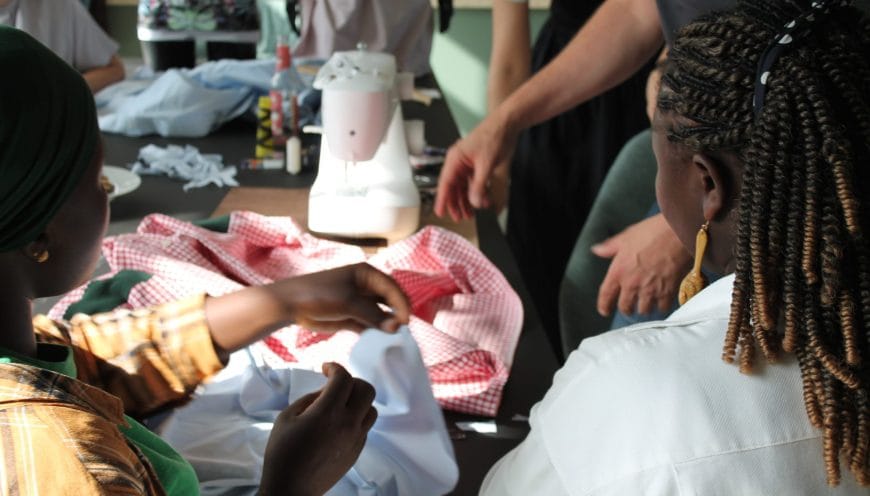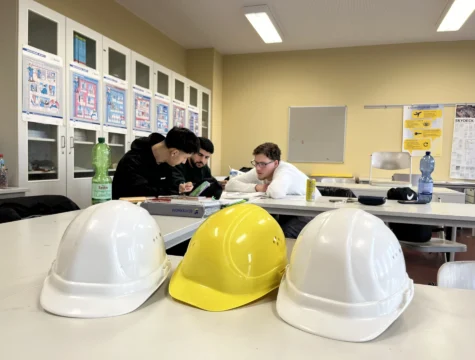Between the 29th June to the 5th of July 2024 we ran a one-week exchange programme in cooperation with our partner the Or Foundation, who brought a delegation from Ghana to Berlin. The delegation was composed of designers, retailers, remanufacturing specialists, researchers, entrepreneurs, and waste management experts from the Kantamanto community.
Strategically timed to coincide with Berlin Fashion Week (BFW), a series of tailored activities were designed throughout the six-day programme with the aim of fostering dialogue and collaboration among different stakeholders and raising awareness of Extended Producer Responsibility (EPR).
Accompanied by the textile team, the 8 delegates had the opportunity to visit waste management facilities like Nochmall and Textilhafen, take part in 202030 summit talks and BFW events, connect with local innovators in the circularity space such as Open Funk, Berlin Textile Coop, and Natascha Von Hirschhausen, as well as participate in hands-on workshops led by upcycling designers from Berlin and Ghana, attend a roundtable at the Bundestag with German decision-makers, and engage in a multi-stakeholder workshop dedicated to exploring, shaping, and harmonising textile EPR policies through a decolonial lens.
These activities were supported by Bundeskanzler-Helmut-Schmidt-Stiftung, Engagement Global (FEB programme), and the Nord-Süd-Brücken Stiftung through the Service für Entwicklungsinitiativen, Landesstelle für Entwicklungszusammenarbeit (LEZ) programme.

Here is a short summary of our exchange program:
Day 1: Connected through textiles
To kick off the exchange programme, we held an introductory session in our co-working space at St. Oberholz with the delegation from Ghana, where we had the opportunity to learn more about our backgrounds and the work and initiatives we are leading in our organisations. This first meeting not only served us to connect on a more personal level, but also to set our expectations for the week.
After lunch, we had a special edition of Textile Journeys focused on ‘Remake’, where we were joined by a group of textile enthusiasts on an exploratory journey through the streets of Friedrichshain in search of discarded clothing, which lead to a collection of 26 Kg in just 1 hour.
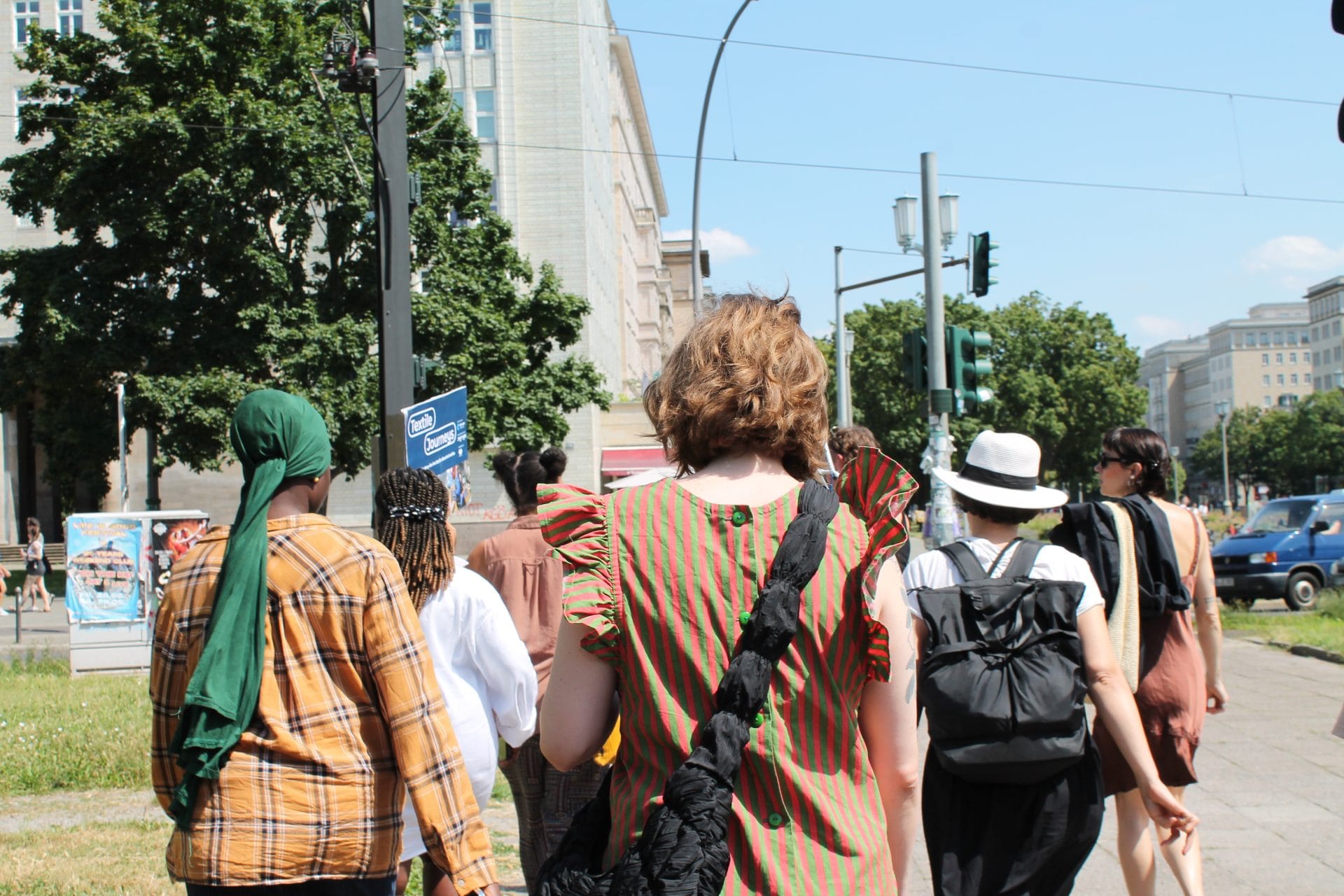
The second part of the event, was designed to allow participants to analyse, reflect on and discuss about the impact of fashion and the global clothing industry on individual lives and the environment.
Under the topic of ‘Remake’, the last part of the session was dedicated to the learning of upcycling techniques. The group was then split into two different workshop stations, one where participants enjoyed experimenting with a zero waste technique taught by remanufacturing specialist Nabi Yankey of the Or Foundation, and another organised by upcycling designer Philip Wehahn of TingDing, where the public took part in learning how to turn men’s shirts into wearable dresses.
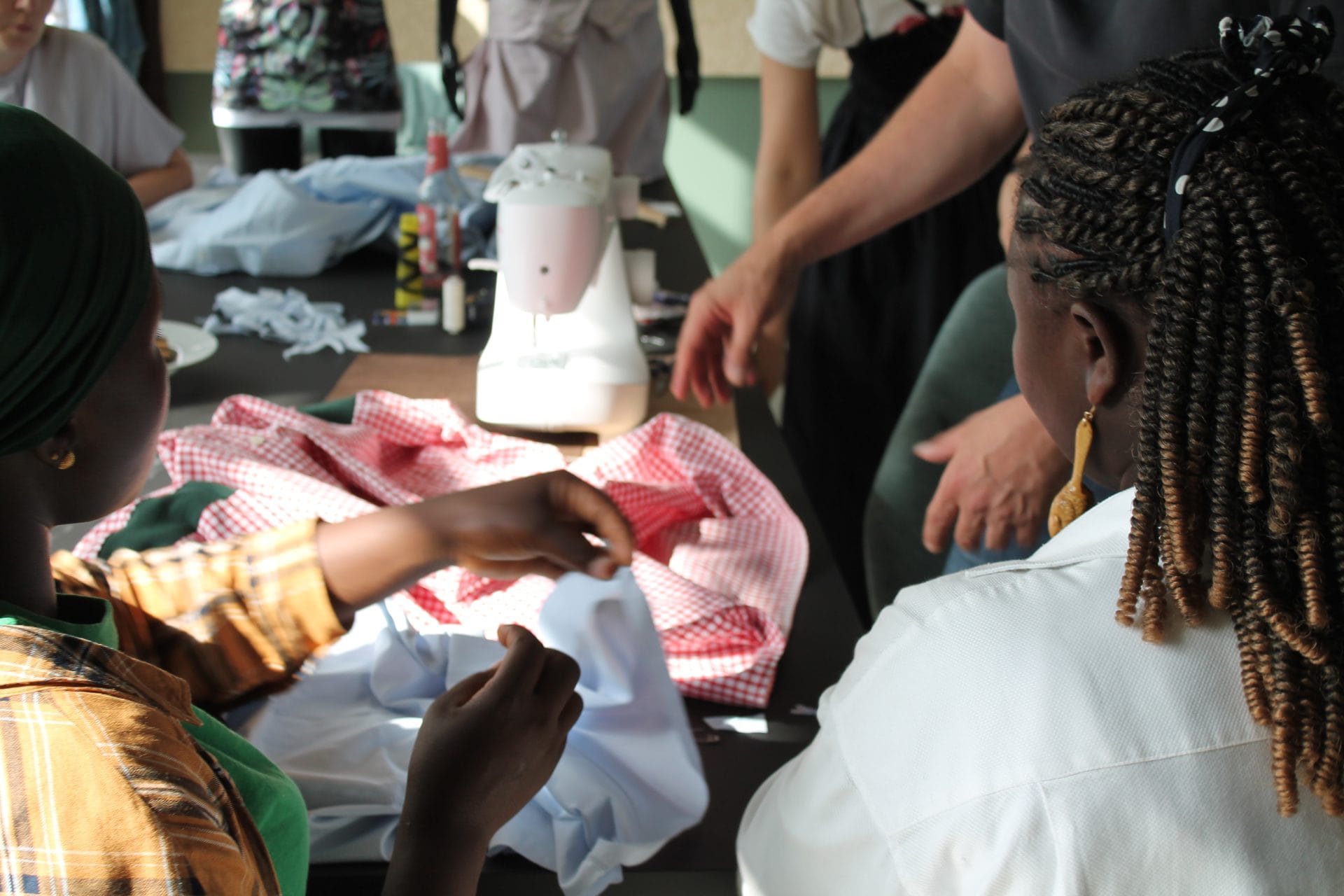
In a nutshell, Saturday was a compelling mix of hands-on activities, in-depth discussions, and eye-opening revelations about the state of textile waste and the challenges of fostering a circular economy. A significant takeaway was the need for the fashion industry to standardise terms related to textile waste, as current misunderstandings hinder effective waste management.
Day 2: Learning how to tackle waste, from design to textile collection
On Monday, we visited Nochmall, Textilhafen, and Natascha Von Hirschhausen, gaining valuable insights into different aspects of sustainable fashion and waste management.
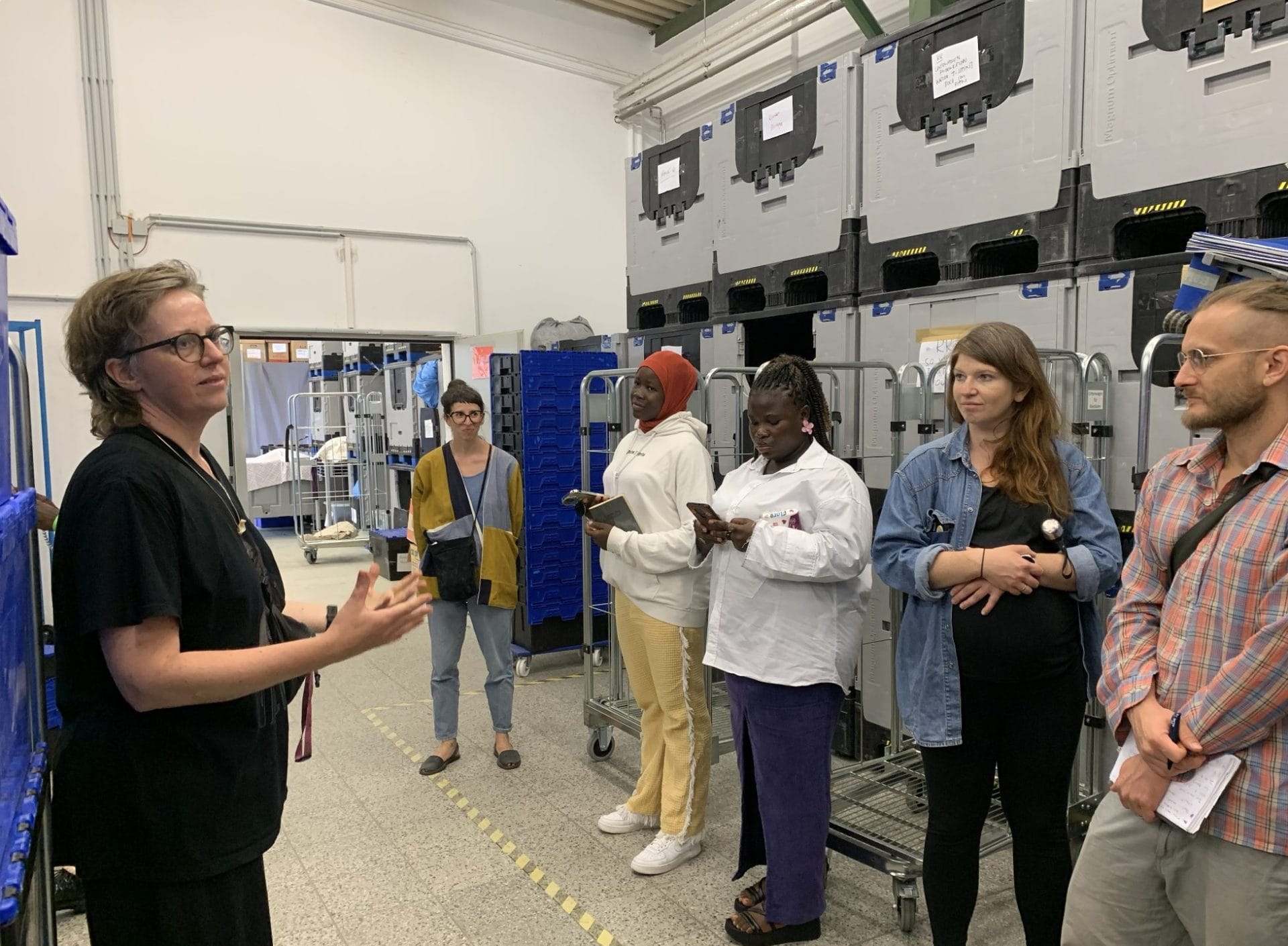
At Textilhafen, led by Beatrix Landsbek from Berliner Stadtmission, we learned about their inclusive social enterprise model, significant community impact, and the challenges they face with waste disposal and donation quality. We discussed the importance of comprehensive data on textile composition, and the potential for raising prices for materials, expanding storage, and enhancing support for upcycling and recycling initiatives.
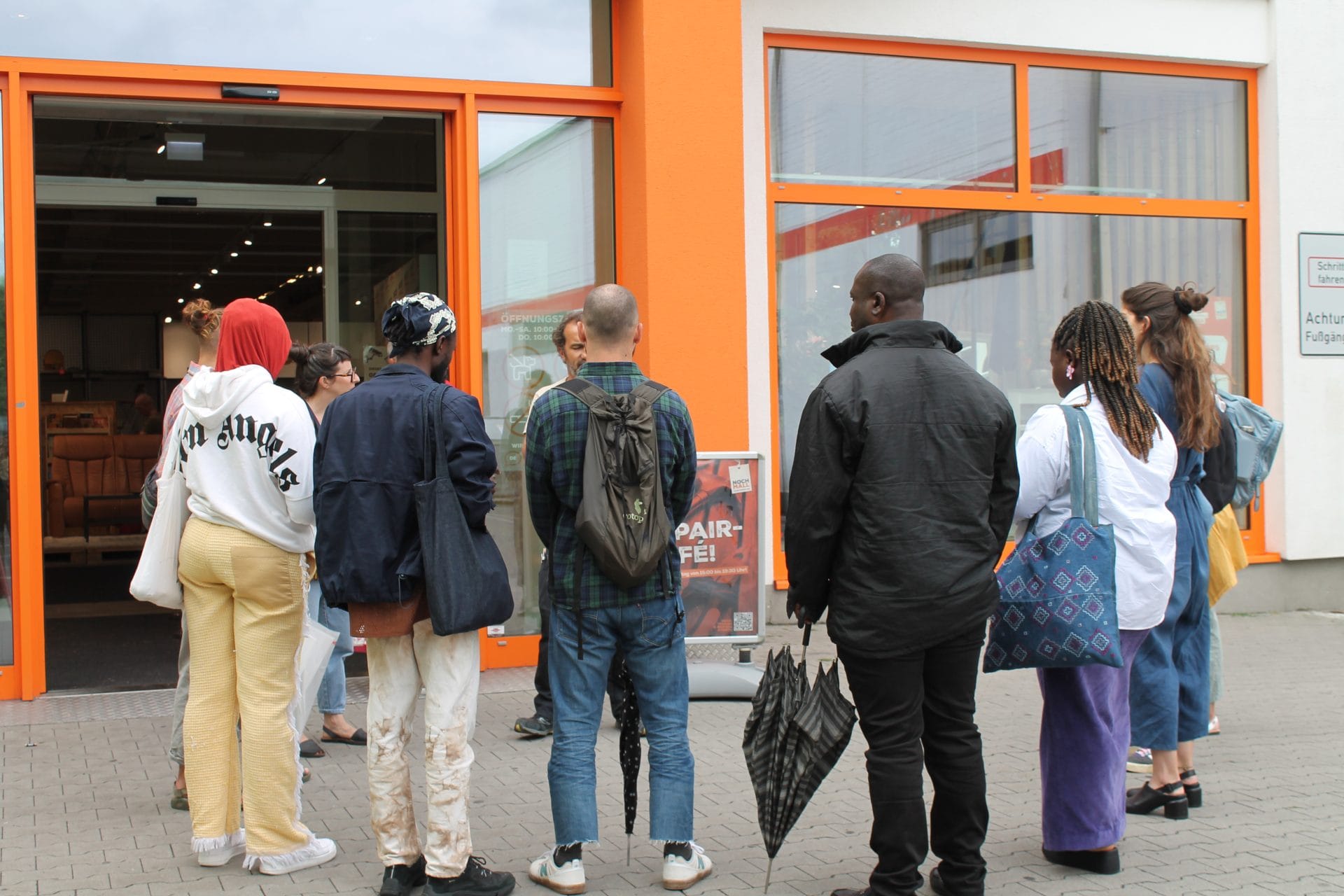
Later in the day, we moved to Nochmall to meet Jens, Head of Logistics & Cultural Event Management, who explained their rapid growth since opening four years ago, their focus on community engagement through cultural events from repair cafes and children’s workshops to auctions and fashion shows, and the challenges of managing clothing donations and promoting sustainable brands.
Lastly, we visited Natascha Von Hirschhausen, a fashion designer with a zero-waste design philosophy, producing locally and using biodegradable materials, who is also actively educating others in the industry about sustainable fashion through workshops and consultancy. As she was preparing a special exhibition for the BFW, we had the opportunity to get a sneak peek. Learning about her commitment to minimising waste and involving the wearer in the process was very inspiring.
Day 3: Meeting innovators from the circular economy ecosystem
Tuesday’s focus was on local, grassroots innovations aimed at tackling global textile and electronic waste.
First, we met with Sara Diaz Rodriguez, co-founder of Studio HILO, at the Textile Coop, a hub for dialogue and innovation in the textile industry located in Friedrichshain. There, we learned about HILO’s groundbreaking open-source textile manufacturing tools, including the E-spinner, recycling machines, and drafting machines—all constructed from a modular family of components that promote wider access and collaboration. We were thrilled to explore potential synergies for collaboration with the Or Foundation, and to test a spinning machine made from laser-cut wood. As Sara emphasised, the focus should be on scaling out solutions, meaning making them accessible to others, rather than scaling them up solely for our own benefit.
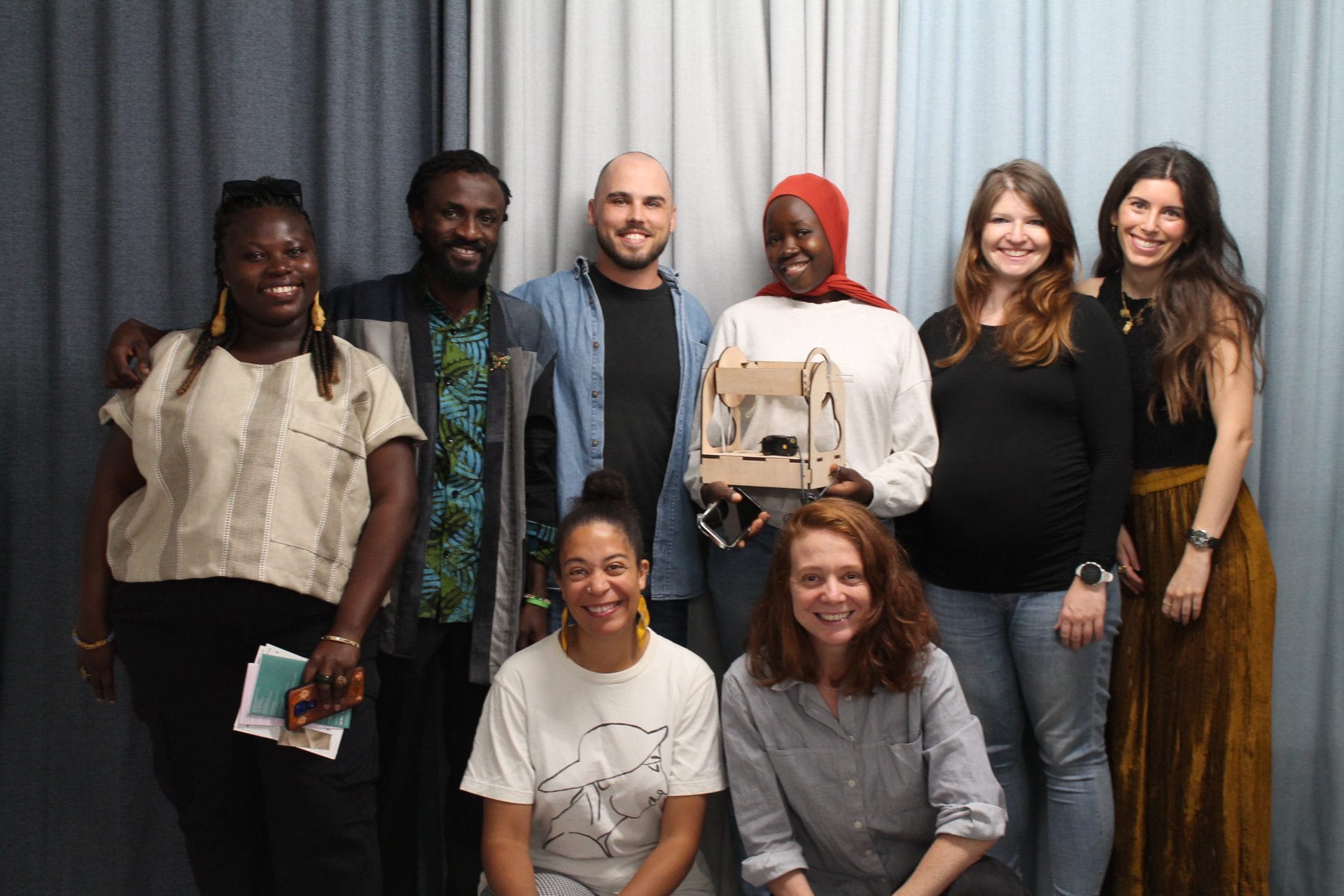
Coming up next, we visited the founders of Open Funk, Paul Anca and Ken Rostand, at the makerspace MotionLab.Berlin.
They shared their journey from grappling with the inefficiencies of repairing broken appliances—such as blenders that are often cheaper to replace than repair—to developing their own circular economy approach. Open Funk’s commitment to longevity is reflected in their blenders, which feature simple, easily repairable motors and are designed to last beyond the typical six-year lifecycle.
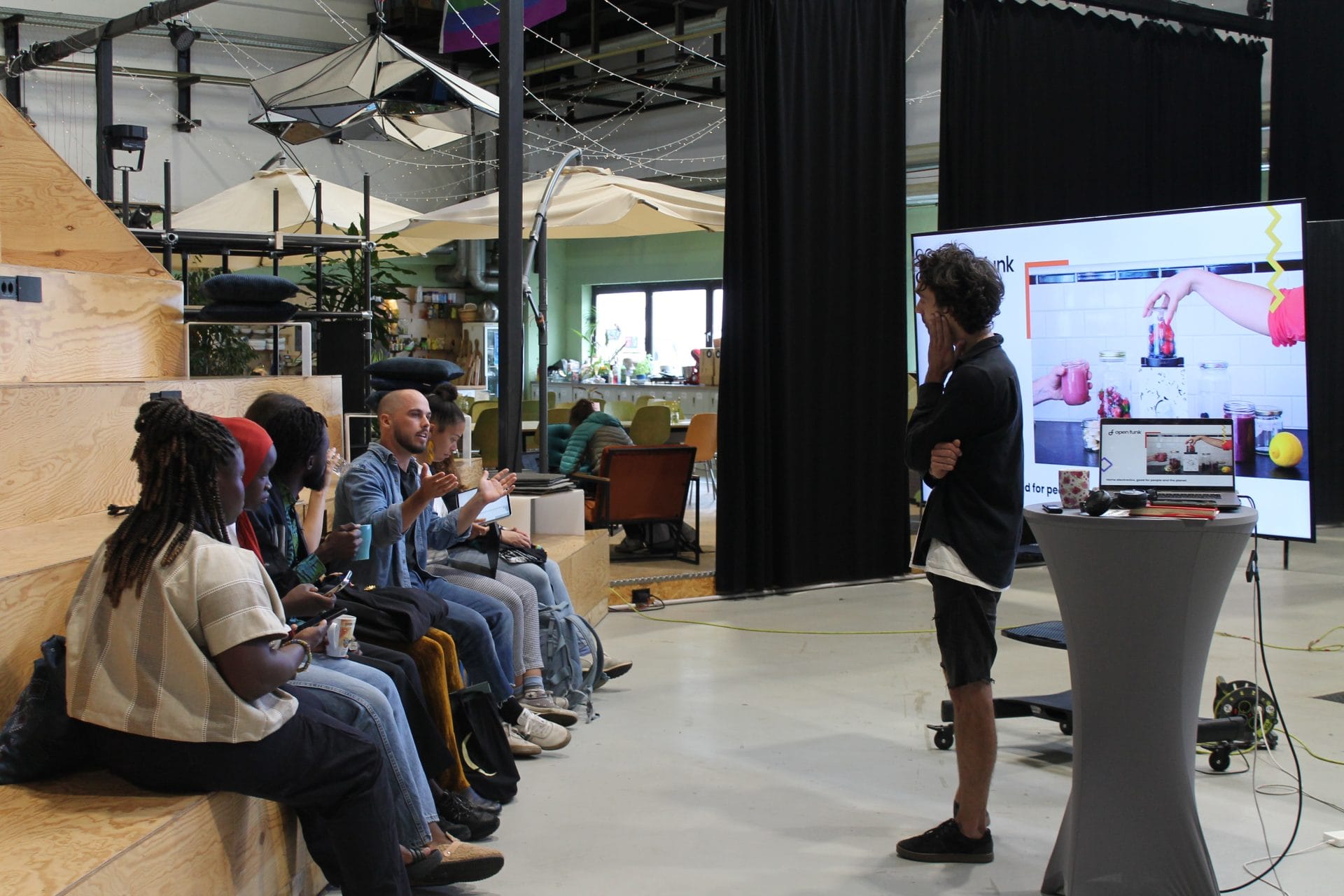
Many interesting conversations sparked during this visit, from the lack of makerspaces in Accra to their interest in utilising local e-waste for manufacturing and working towards integrating their solutions with broader waste management efforts.
Finally, the day ended with two separate events. First, a community class on the stage at the 202030 Summit with Nabi Yankey, Paul DuFour, Liz Ricketts, Latifa Bukari, and Solomon Noi from the Or Foundation, together with our second chairwoman and textile team lead, Arianna Nicoletti. The discussion touched on the lack of a universal definition of quality and the risks faced by traders with unsellable bales, as well as the need for systemic change, better waste management and empowering local communities through practical actions rather than punitive measures.
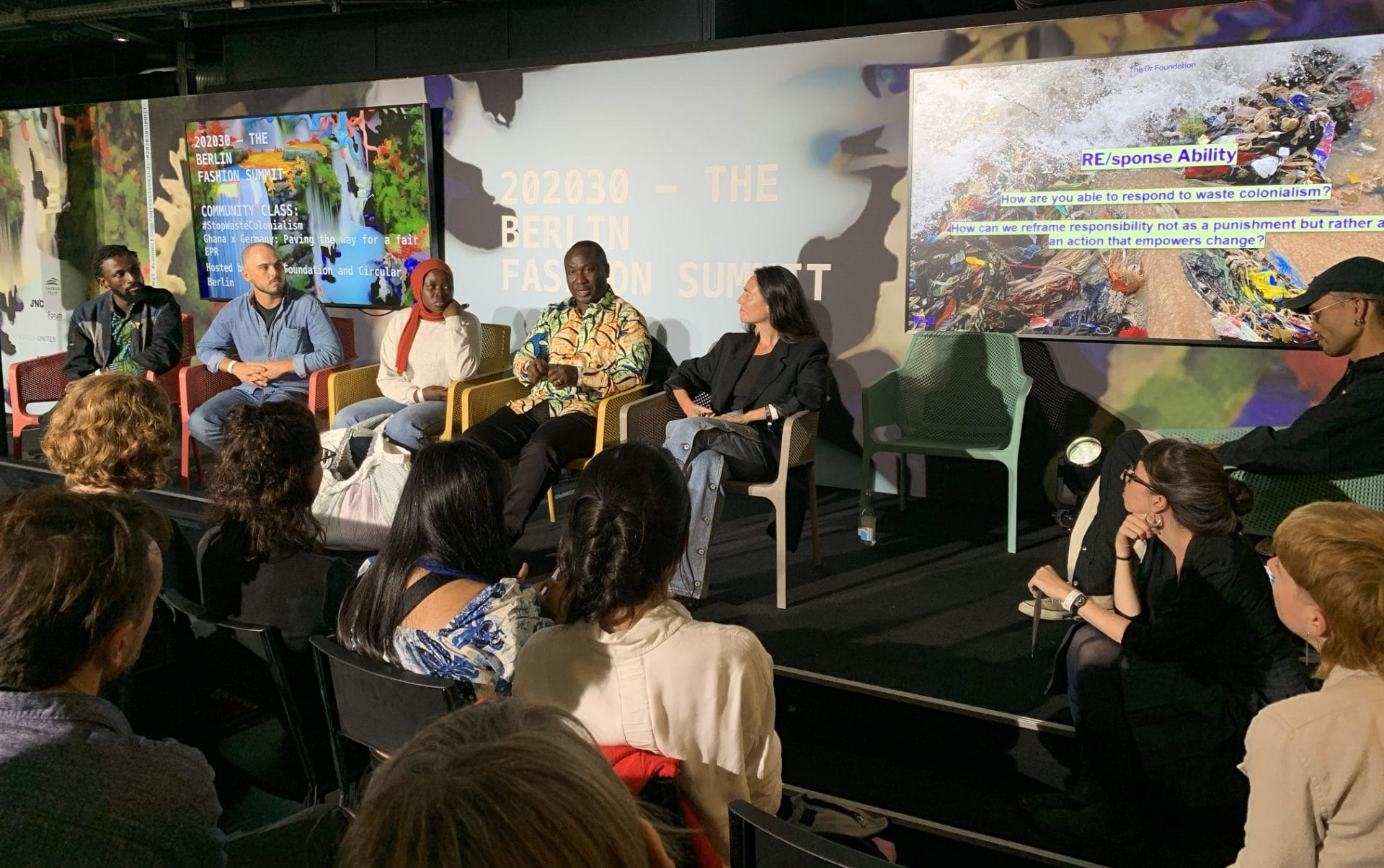
To end the day, we were invited to the BFW ‘Black in Fashion’ pop-up at Buki Akomolafe and Emeka’s shared studio. This was a very vibrant event, full of wonderful designs and inspiring conversations about shaping the fashion landscape to foster connections and give more visibility to diverse creative voices.
Day 4: Time for exploration
On Wednesday, the delegation split into two groups. While some went to meet Tau Pibernat, co-founder of the Urban Fibres studio, to learn more about their work in transforming discarded clothes into recycled yarns, others went to the 202030 Summit. For those attending the Summit, the panel discussion moderated by Lavinia Muth, with Liz Ricketts of the Or Foundation and Solomon Noi of the Accra Metropolitan Assembly as guest speakers, highlighted the complexity and entity of waste colonialism. Liz reminded us that we are dealing with a legacy of waste from what was put on the market 10/20 years ago, and we need regulations and actions that can address this crisis now.
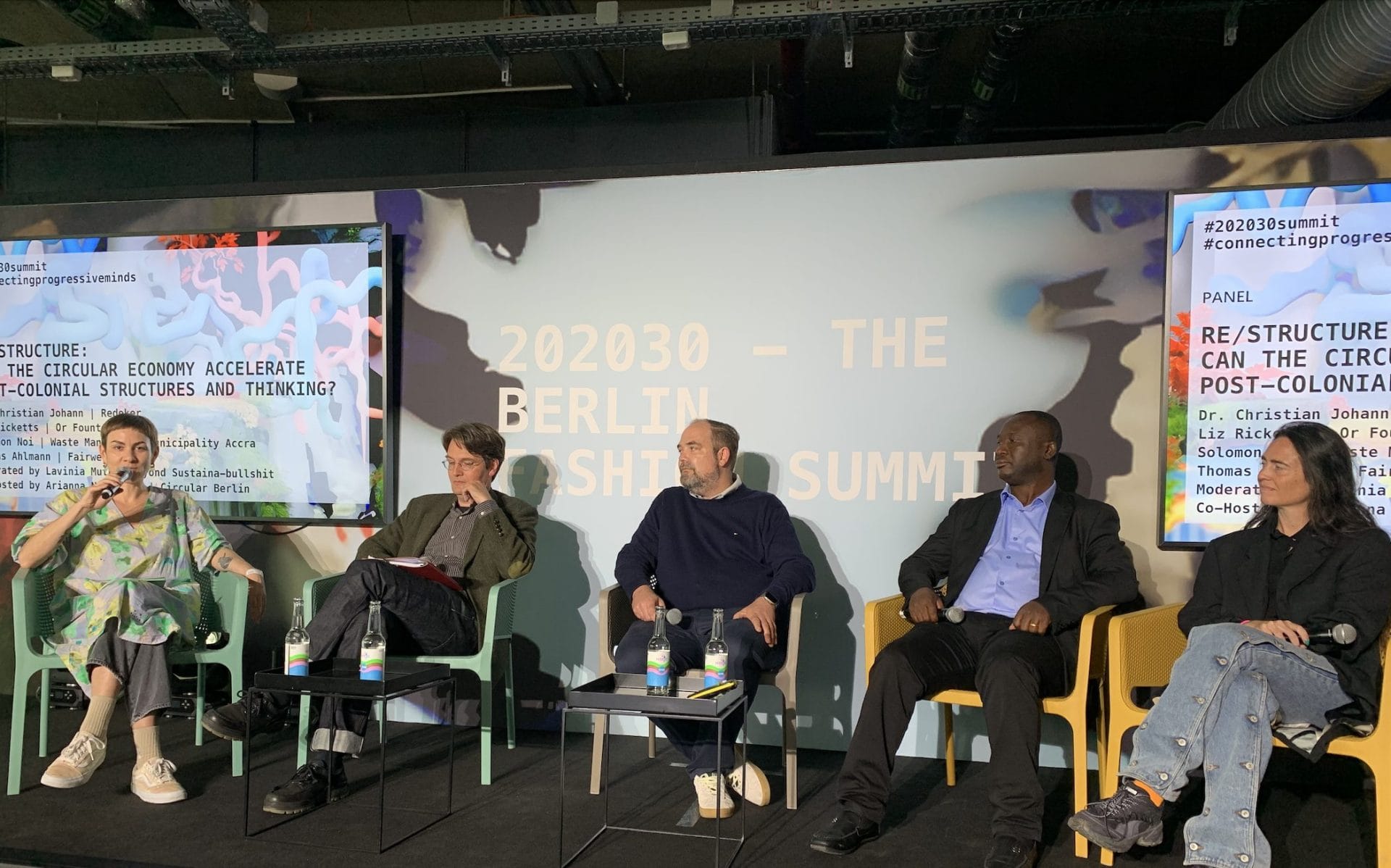
Day 5: How to tackle textile waste – from politics to design
The day started at the German Bundestag, where we had the opportunity to meet with several parliamentarians such as Michael Thews, Jürgen Kretz and Judith Skudelny and discuss the upcoming revision of the EU Waste Framework Directive. That day we were also joined by Elisabeth Winter from Bundeskanzler-Helmut-Schmidt-Stiftung, who also gave an introductory speech.
Overall, it was a very positive roundtable discussion, where we felt heard and encouraged to continue with further talks around what effective EPR policy for textiles needs to entail in order to enable progress. Some of the topics we discussed were the need to build an EPR framework taking into account the waste hierarchy, the importance of supporting resale and reuse of textiles instead of banning exports, and the necessity to assess textiles differently to other products.
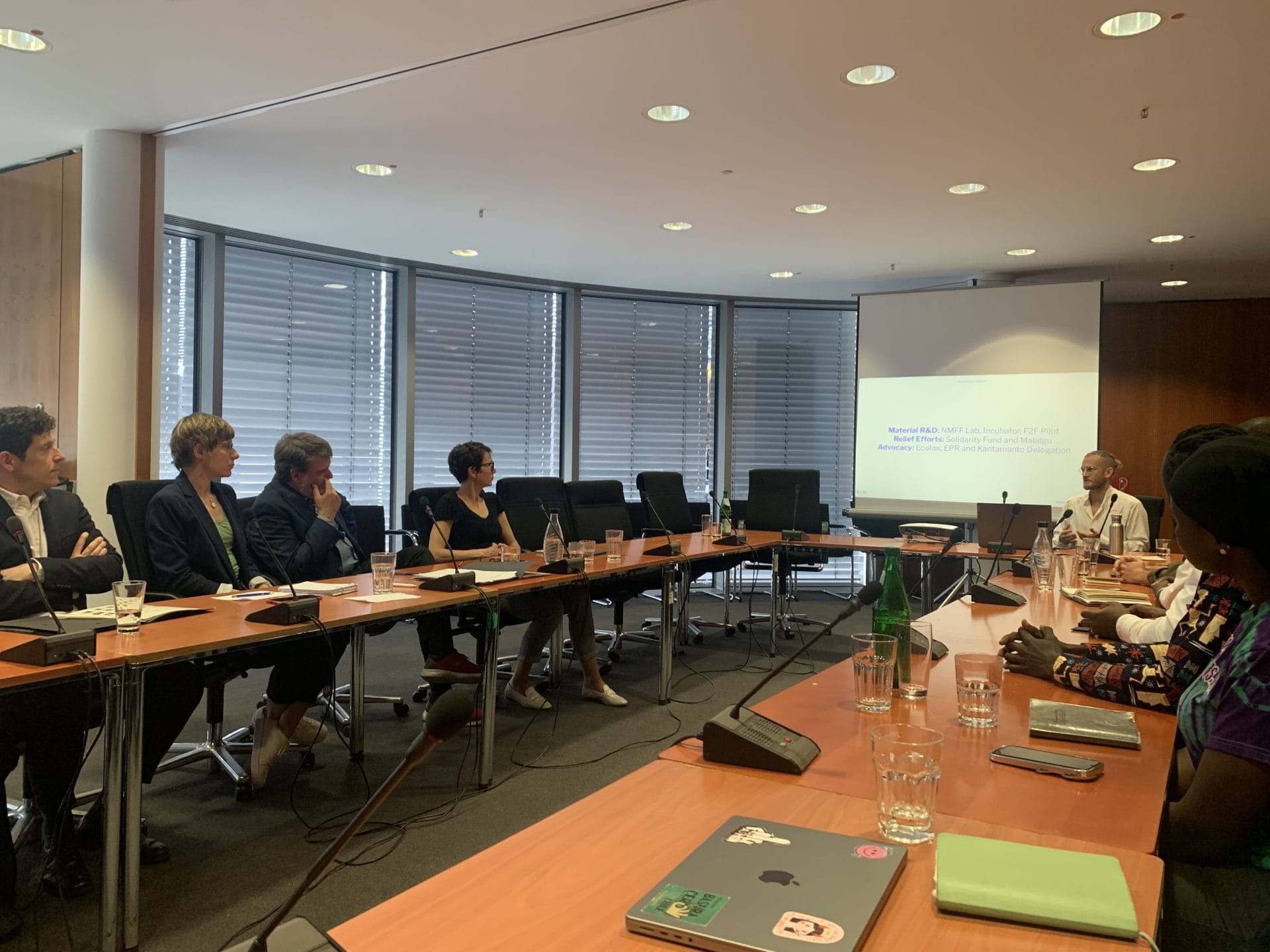
After enjoying a lunch break with the delegation, we went to Buki Akomolafe and Emeka’s shared studio to embark ourselves into the second hands-on workshop experience of the week. This time we had a 4h session, where we enjoyed an informal discussion around textiles and what it means to upcycle out of necessity in Ghana, followed by a very empowering co-creation session facilitated by the talented designers Emeka, Buki and Nabi. As an outcome we created a collective art-piece from textile residues. I am deeply proud of how this session turned out, as it was a beautiful interplay of different passionate creative minds finding new ways to rethink textile waste through craft.
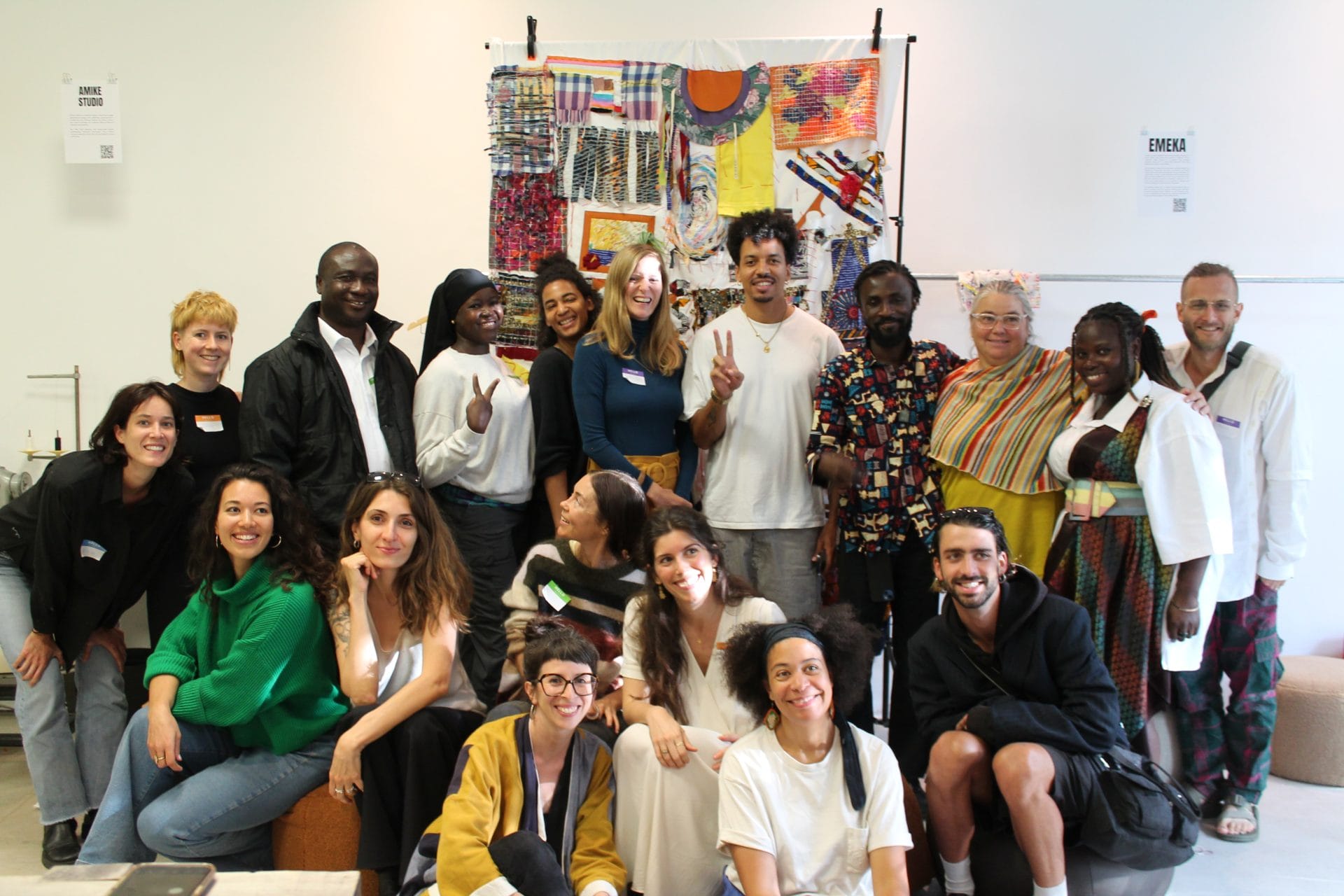
To celebrate our last night together, we went to a pan-African restaurant where we all enjoyed some quality time to decompress and reflect on our shared experiences.
Day 6: A multi-stakeholder workshop bridging Germany and Ghana
On the last day, we organised a multi-stakeholder workshop on decolonial discourse and collaborative engagement in the context of EPR. The event, hosted at Zalando’s headquarters and moderated by Lavinia Muth, brought together an inspiring group of 30 individuals with a range of relevant expertise, including waste management specialists, researchers, entrepreneurs, NGOs, policy makers, and key players in the field of fashion and sustainability. That day we also had the pleasure to count with the delicious vegan catering from Kernvoll who brought a great selection of locally made products.
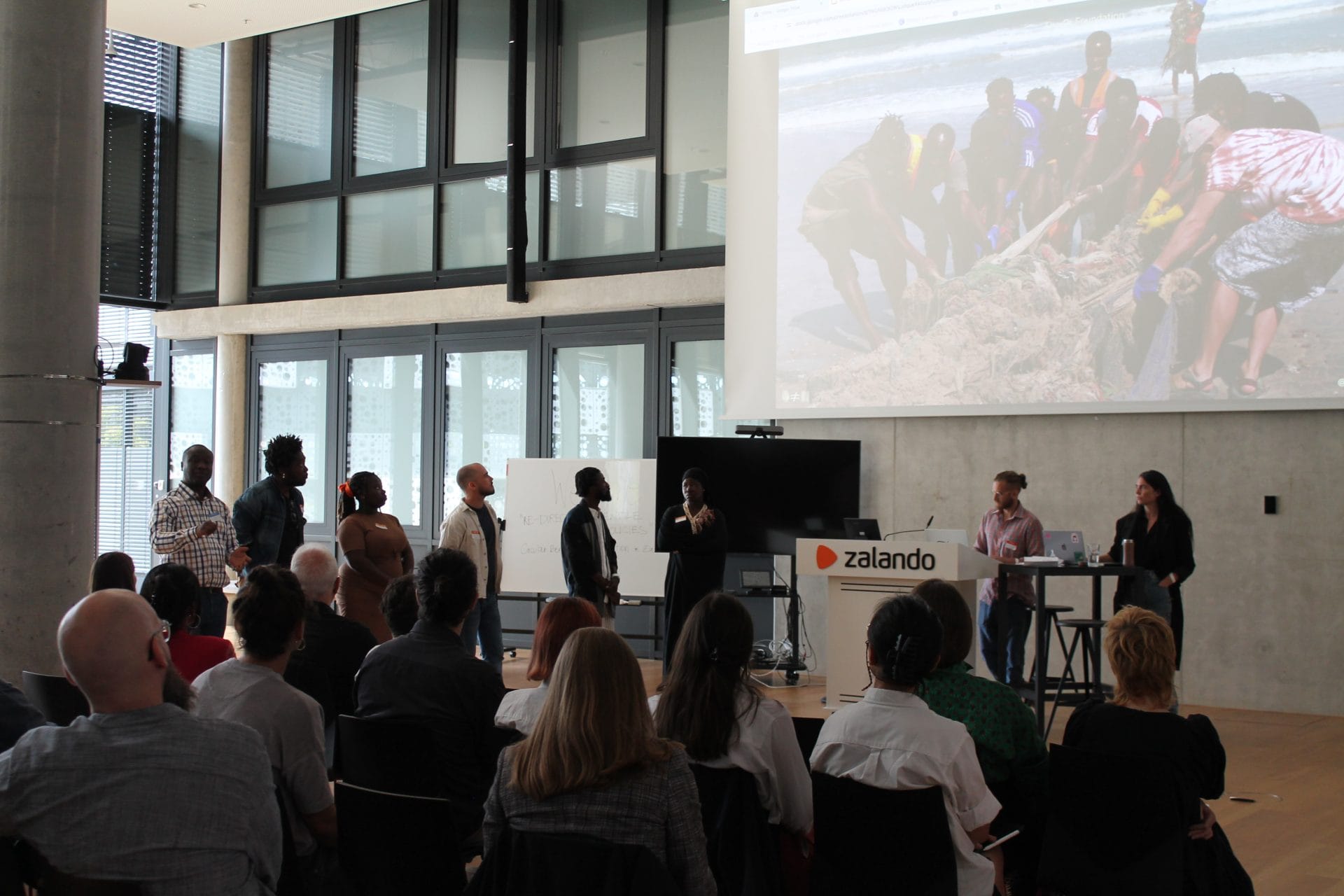
With the goal to foster dialogue and collaborative problem-solving among stakeholders from Germany and Ghana, a big part of the session was dedicated to group discussions and envisioning scenarios on how to shape EPR policies to ensure they are equitable and sustainable, reflecting diverse perspectives, especially from the Global South.
The insights gained throughout group discussions significantly enriched our understanding, and will help us draft a position paper that will be shared with German and European politicians and parliamentary representatives to inform the development of future textile EPR policies.
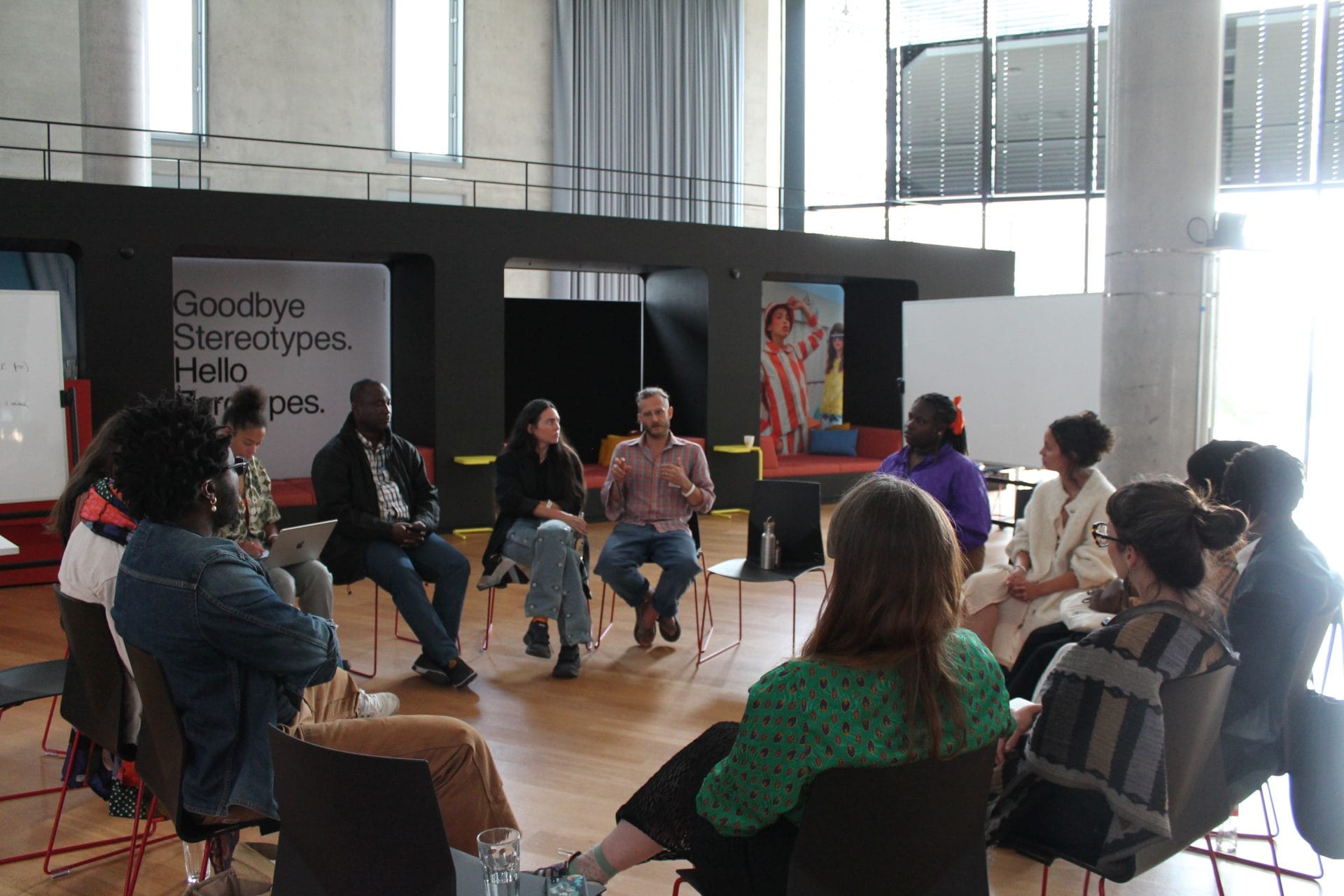
At the end of the event, we met for a wrap-up meeting, just the Circular Berlin team and the delegation, to reflect on our experiences, assess whether our expectations had been met and discuss next steps.
On a personal note, after organising and participating in such a dynamic mix of events, initiating meaningful connections and conversations, and thoroughly enjoying every moment, I must say that this was an exceptionally exciting and fruitful exchange on many levels. I am immensely proud of our textile team for being such a vibrant force, and I am grateful to the Or Foundation for placing their trust in us.
Throughout these days, I have felt deeply inspired by the shared collective spirit for igniting change and the commitment to ensuring everyone’s voices and stories are heard. I have learned about the legacy of materials already in circulation and their impact on people’s livelihoods—not only from a health perspective but also considering the profound sense of shame associated with labour in the second-hand clothing market. Additionally, I am impressed by the incredible grassroots initiatives in Ghana that are creating new jobs and healthier environments, as well as by the creative force from Berlin, aimed at minimising waste and changing consumer behaviour to tackle the root causes of this cascading effect. At the end of the day, fashion’s crisis is indeed a behavioural problem, and we should be able to think in a holistic way and understand that everything we put into the world will have an impact.
Author: Laura Llonch – Project Manager for ‘Ghana x Germany: Paving the way for an equitable EPR’

